The Institute of International Education (IIE), a non-profit organization based in New York City that supports international researchers, estimates that thousands of displaced scientists from nations such as Syria, Iraq and Yemen are now living as refugees elsewhere. Its figures are based on refugee counts, pre-war higher-education data from the countries of origin, applications for assistance and personal anecdotes.
It’s unclear how many scientists will be able to leave Afghanistan, but a Nature editorial last month called on the international scientific community to help support those who become refugees as well as researchers who must remain in the unstable country (see Nature 597, 8; 2021).
Refugee scientists who have escaped nations that are riven by war or other conflicts can struggle to continue their research in their new countries of residence.
The IIE’s Scholar Rescue Fund (IIE-SRF) offers fellowships and is one of a small number of sources of support for refugee scientists’ efforts to keep their research going. Another is the Council for At Risk Academics (CARA), a London-based charity that helps academics to continue their work at one of 124 partner universities and institutions in the United Kingdom, or in other safe locations.
CARA launched a Syria programme in 2016 following a huge increase in the number of academics seeking help after fleeing the country, where civil war broke out in 2011. Kate Robertson, CARA’s Syria programme adviser, says the programme requires applicants to have held a paid post as a lecturer or researcher at a higher-education institution or an equivalent.
Unsurprisingly, female refugee scientists can face extra challenges — including gendered, cultural and socio-political barriers to academia (see R. Ibesh et al. Int. J. Educ. Res. Open 2, 100027; 2021). At CARA, for example, there is a 6:1 ratio of men to women among programme participants. “There’s always been a gender imbalance,” says Robertson. But she says that more women are now applying for research grants and leading teams.
Nature spoke to two CARA-supported refugee scientists from Syria (one of whom requested anonymity) and an IIE-supported researcher from Yemen about their trials and triumphs as they continue their research despite extraordinary conditions.
ADNAN ALMOHAMAD: Improving my English would change everything
Adnan Almohamad is an archaeologist from Syria, who is now based in Istanbul, Turkey.
I came back to Syria in 2008 with my wife and three children, after earning a master’s degree in social sciences in France that focused on archaeological antiquities. When the war started, I was working in the Syrian government’s Directorate-General of Antiquities and Museums, and was a lecturer in the Department of Antiquities at the University of Aleppo. In 2012, the Free Syrian Army took control of eastern Aleppo, and my family and I fled the city after government forces began randomly bombing the area where we were living. I went to Manbij, my hometown, which is about 90 kilometres east of Aleppo and was then under control of the Free Syria Army. In 2014, once violence escalated as Islamic State rebels took control, I sent my family to Osmaniye, a small city in southern Turkey, but I came back to Manbij and formed a small, secret team to document the destruction of Syrian cultural heritage.
In 2016, I was forced to flee to Turkey, joining my family in Osmaniye. When I first arrived, I worked at least 12 hours a day in a factory, for US$3–5 per day. It was just enough to buy food. I was always worried about how to pay rent and other bills. I was lost. I had no time to think about my academic future.
In December 2018, I left my family to seek work in Istanbul. I met a friend who told me about CARA’s Syria programme. It was a turning point in my life: in 2019, I e-mailed CARA and got a reply 20 minutes later. They invited me to attend a workshop in Istanbul a month later, about how to write high-quality academic papers.
CARA then awarded me a grant to conduct research on the destruction and looting of Syrian cultural heritage sites, particularly in Manbij and surrounding areas. It also gave me funding for a research visit to Birkbeck, University of London and Durham University, UK. I travelled there in mid-2019, and shared my knowledge of what’s happening on the ground regarding Syrian heritage and cultural resources. We had collected photos, videos and reports documenting destruction and looting of archaeological and cultural heritage sites. We shared these with foreign academics who had been able to access only satellite imagery, and we were able to compare my information with theirs to understand the scale of the damage.
I don’t speak Turkish. I speak some French and know some words in English. If I could improve my English or study English in the United Kingdom for six months, it would change everything for me. My goal is to attain a PhD in archaeology and, one day, to write a book on the archaeological history of the countryside east of Aleppo, spanning the earliest beginnings of agrarian civilization, the Bronze and Iron ages, and the Roman and Ottoman empires.
CARA’s Syria programme has helped me return to my academic life. It gave me the opportunity to connect with Syrian and foreign academics, to acquire academic research skills and to improve my English. I have produced five articles; two have been accepted, two are under review and I am still working on the fifth.
ANONYMOUS FEMALE CHEMIST: Don’t wait for the situation to get better
The interviewee, who requested anonymity, is a Syrian who is now based in Turkey.
In 2012, I had just finished my master’s degree in chemistry at a university in Syria when fighting broke out in the country.
My husband, children and I didn’t leave Syria right away, because we expected the war to end soon. We moved to the northern suburbs of Aleppo, but once the shelling reached those areas, we felt we had to move to Turkey. When we arrived there we had little money, so we stayed in a refugee camp, which I estimate held around 1,000 people. We were allowed to set up temporary Syrian schools to teach our children, and to work in the camp’s schools for nominal wages. After a year, we were able to rent a modest house in a town in southern Turkey.
Hoping our stay would be temporary, I found work as a chemistry teacher rather than continuing my own education. But I didn’t speak Turkish or have Turkish citizenship, so my employment options were limited. It was really difficult when we first moved to Turkey because we couldn’t communicate with others, which also made sharing my CV or presenting myself or my work so much harder.
My husband, too, studied chemistry and worked as a teacher in Syria. Three years on from our arrival in Turkey, we realized that we would be living there as refugees for quite a while. We decided to think of ways to continue with our academic goals.
In 2016, I started learning Turkish and made contact with CARA. I was invited to a round-table discussion involving academics and Turkish officials; I was one of only two female academics. CARA provided us with English-language courses and tutors. These weekly sessions helped me and fellow Syrian academics to improve our language competency; we are now familiar with English grammar and how to read, but conversation is still difficult.
Ultimately, I decided to pursue a research scholarship from the Turkish government to conduct my PhD, and was awarded one in 2016 after an initial rejection. I started my PhD in chemistry the following year. Many Syrians have been granted Turkish citizenship. Employment options are very different depending on whether you have citizenship or not. If you don’t, you can teach foreigners or international students as long as you can speak either Turkish or English, but contracts are temporary.
To get a job in academia, immigrants must get an equivalence certificate, a document stating that your degree is equivalent to the corresponding Turkish degree. These certificates are issued only by the Turkish Ministry of Education. It’s difficult to get one: I took the required exam last month for my master’s degree, but I did not pass. A group of colleagues are signing a petition to have this requirement reviewed, because so few people have passed.
I experience more equity in Turkey as an educated woman in academia than I did in Syria. But, as a refugee here, I’ve been on a path that’s full of challenges: I’ve had to travel long distances every week, produce research in a foreign language, collaborate with people I didn’t know and live in a world of uncertainties.
There are very few female Syrian academics compared with male ones; I know only about ten other female researchers. I hope that women can be provided with more support to increase those numbers.
I know I will achieve something; I am meant to be here in Turkey. In May, I published a review paper, and I plan to finish my PhD in three months’ time.
My advice to other refugee scientists is not to waste any time once you move to a new country. Start learning the native language as soon as possible. And don’t make the mistake we did: don’t wait for the situation to get better. Find ways to continue on an academic path. If the situation improves in Syria and we can go back, we will be going back stronger than before.
HASAN MARIDI: Securing residency is my biggest challenge
Hasan Maridi is a Yemeni nuclear physicist, now based in Jordan and Poland.
I’m from a village on the Red Sea coast of Yemen. I got my PhD in nuclear physics in November 2014 from Cairo University, and returned to Yemen the following year to build a life there with my wife and three children. By then, the country’s civil war had escalated, and on 26 March 2015, there were air strikes led by Saudi Arabian forces that were intervening on behalf of the Yemeni government. Soon after, there was no water, no Internet, no anything.
I focused on how to support my family, and found work teaching in the Faculty of Engineering at the University of Hodeida, based in the Red Sea port city of that name, earning about US$90 monthly. I worked there half-time for about two years. Sometimes I taught courses far from my speciality to keep my family fed. We lived in a single room without beds, water and electricity. I remember trying to find a street lamp so that I could write lectures and correct the exam papers of my students. In the summer, when there was no teaching work, I drove a taxi and worked in a sweet factory.
I am a theoretical nuclear physicist. When I heard about the IIE-SRF scholarship, I applied and got a grant in 2018. In August, I travelled to Jordan. It was a difficult and terrifying trip, on which I was interrogated at dozens of security checkpoints. In February 2019, my family joined me in Amman. I found work as an assistant professor in alternative energy technology at Philadelphia University in Amman, the institution that hosted my scholarship. I then applied for a scholarship from the Polish National Agency for Academic Exchange, an organization set up in 2017 to foster academic mobility between Poland and other countries.
I joined the Heavy Ion Laboratory at the University of Warsaw for two weeks in early 2020. I had met its principal investigator several years earlier at an international conference, so he knew my situation in Yemen and sponsored me. Then, COVID-19 emerged, and I returned to Jordan for six months. In September 2020, I returned to Warsaw to continue my research with a mini-scholarship from the IIE-SRF — about five months of funding.
The biggest challenge lately has been securing residency for my family in Jordan. In April 2021, I returned to Jordan to resolve their residency status. It’s been a long, convoluted process. I now have to pay fees to receive residence cards for my family. Hopefully these will allow my family to receive visas to enter Poland, and join me there next year.
I have worked hard. In 2021, I published an article in the International Journal of Modern Physics E, and I am a co-author and first author on two papers published by Physical Review C, a nuclear-physics journal and the best in my field. I forget about visa and residency problems when I’m working.
In 2020, I co-founded the Association of Yemeni Academics and Professionals to assist Yemeni academics abroad. We have a Facebook group and a YouTube channel. We share information on grant or job opportunities, and we write recommendation letters. I’m confident in myself, and confident that I will reach my career goal of one day working at top US research laboratories.
"how" - Google News
October 19, 2021 at 05:31PM
https://ift.tt/3lTKpTS
How three refugee scientists kept their research hopes alive - Nature.com
"how" - Google News
https://ift.tt/2MfXd3I
https://ift.tt/3d8uZUG
Bagikan Berita Ini
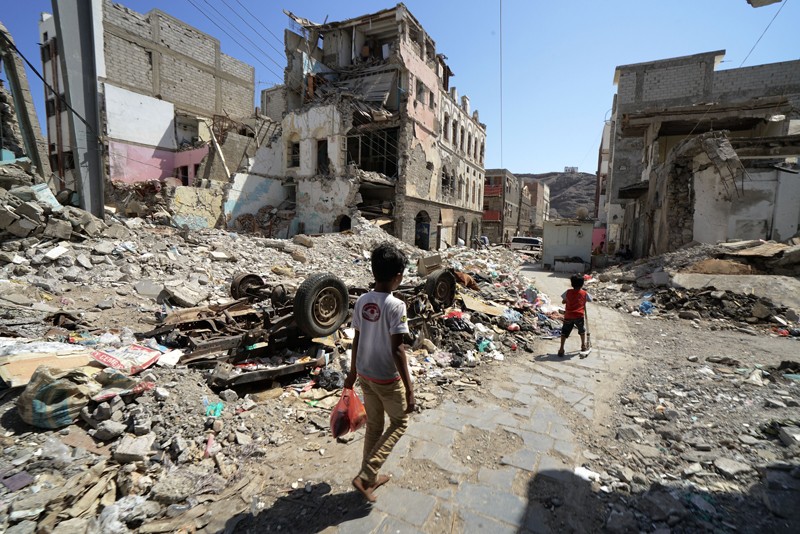
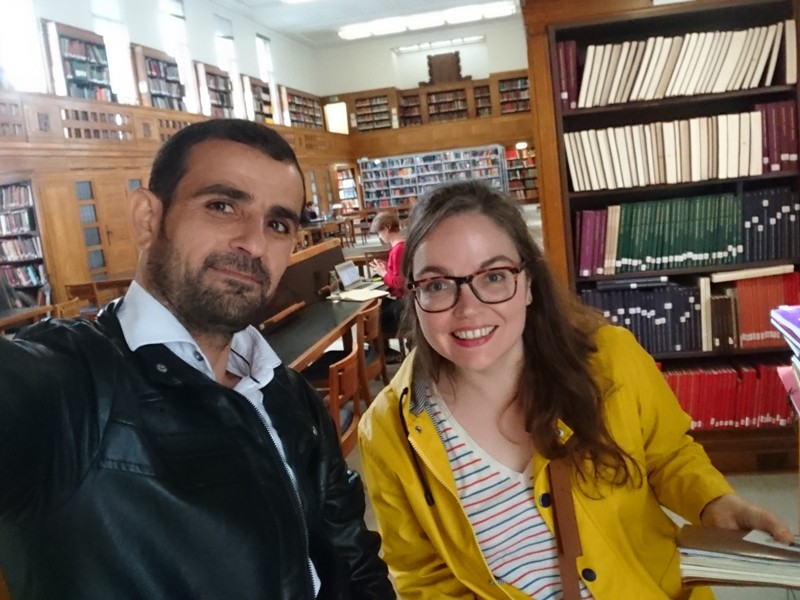
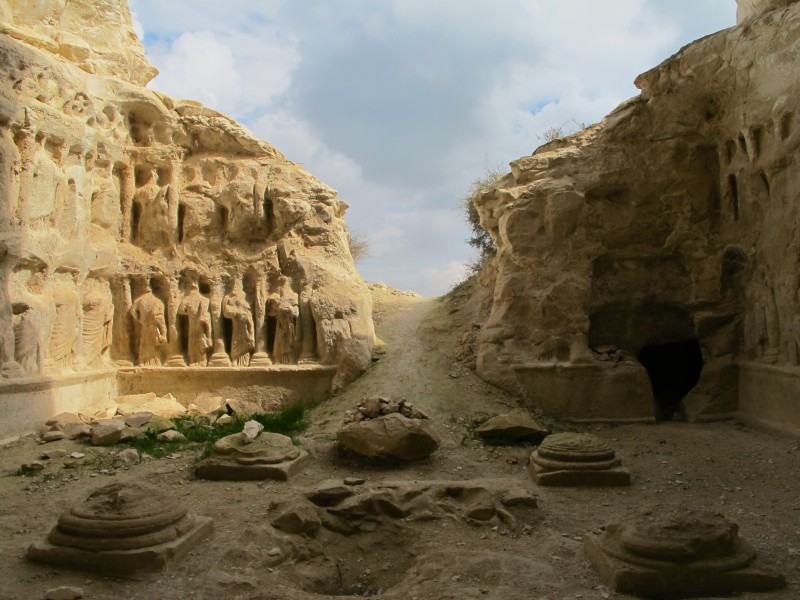
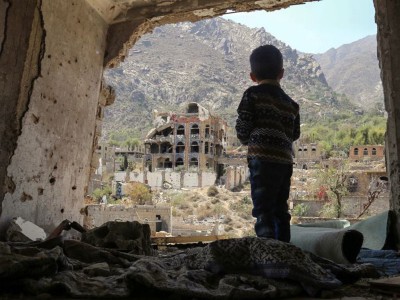
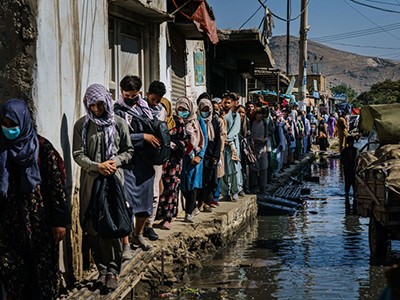
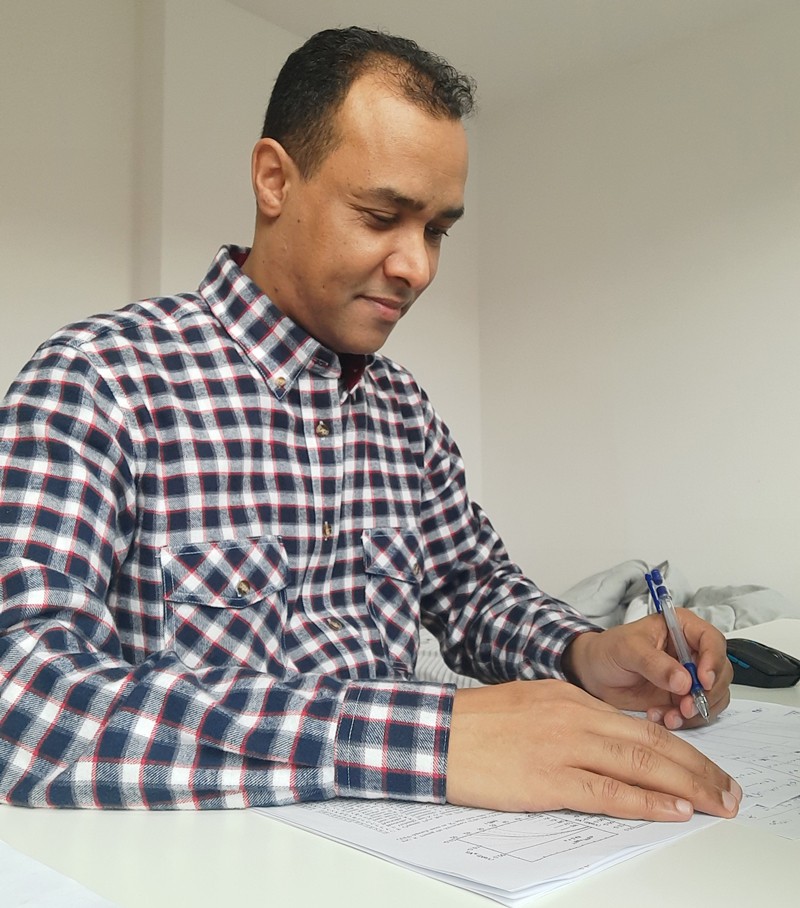















0 Response to "How three refugee scientists kept their research hopes alive - Nature.com"
Post a Comment